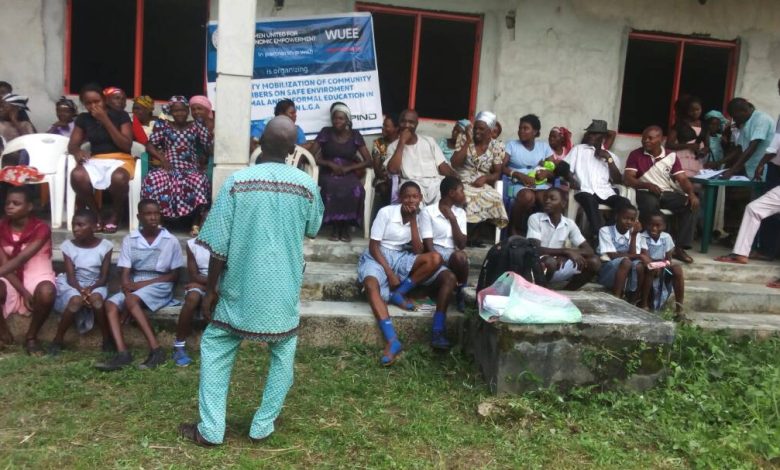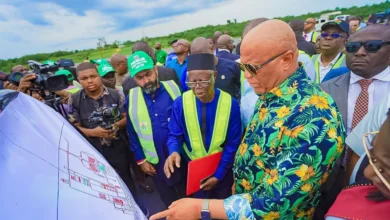
A Non-Governmental Organisation (NGO) has changed politicians representing the people to always ensure that school projects captured in government annual education budgets are implemented and secured for development.
Speaking during a two-day Town Hall meeting on Tuesday organized in Onna and Ikono council areas respectively by Women United for Economic Empowerment (WEE) in partnership with USAID, the Executive Director Mrs Iniobong Frank explained that involving communities in education budgets, especially at the grassroots level will give them the opportunity to state their needs in the school environment.
The Executive Director who was represented by the Grant and Compliance Manager Mrs Emem Ekong attributed the presence of abandoned school projects in rural communities in the state to non-involvement of community members in annual budget processes of the local government.
The Executive Director observed that only councillors in various wards who never consulted stakeholders in their communities singlehandedly decide on projects for the people even when they are not in need of such projects.
She noted that the problem facing communities in the area was a situation where some councillors initiate projects in their wards that are mostly not needed by citizens.
” After their exit from the council, these projects become wasted and not used by the people since it was not their priority and need.
” Councillors should seek the opinions of community members to know what they need for inclusion in the local government budget, rather than initiating projects not needed by the people, as this will help reduce the number of uncompleted, abandoned and unused projects in the area.
She frowned at situations where contractors refuse to deliver jobs awarded to them even when these projects are captured in the budget and payment made accordingly adding that it leads to abandoned projects littered in the area.
Read Also: Pipeline Contract: Okowa commends FG, says first time it’s heeding to wise counsel
She disclosed that the importance of the involvement of citizens in budget processes led to the constitution of the citizens’ budget committee in their organisation.
“Communities have right to ask questions if their needs captured in the budget are not met, and if implemented, are not executed according to specification.
She further explained that budget processes are participatory with the introduction of citizen’s budget which commenced in 2019, adding that the department of monitoring and evaluation is saddled with the responsibility of tracking budgets to assess if funds released to different sectors for project implementation are used for such purposes.
Participants at the Town Hall meeting complained that they are not usually given the opportunity to participate in budget processes, and most times difficult for a common man in the area to make inputs in budget processes.
The participants who were selected from five communities of Oniong West, Okat, Nung Oku Ekanem, Nung Oku Etina and Ikot Akpan Eshiet, frowned at situations where certain projects captured in past budgets but not implemented are not reflected in the new budget but replaced with new ones.
One of the participants Mrs Abigail Idiong noted challenges faced by teachers in both primary and secondary schools in the area such as the provision of wrong textbooks and hoped that when contracts for the provision of books are awarded, subject teachers would be carried along to ensure the right textbooks are supplied.
In a related development, participants at the Town Hall meeting in Ikono local government area have decried the lack of adequate funds for the servicing of the education sector in the area.
A participant who pleaded anonymity blamed the situation on local government’s joint account with the state government despite series of agitation for local government autonomy.
She said paucity of funds in the local government administration has caused the local government authority to merge education department in the area with the information, culture and sport when it should have been separated.




